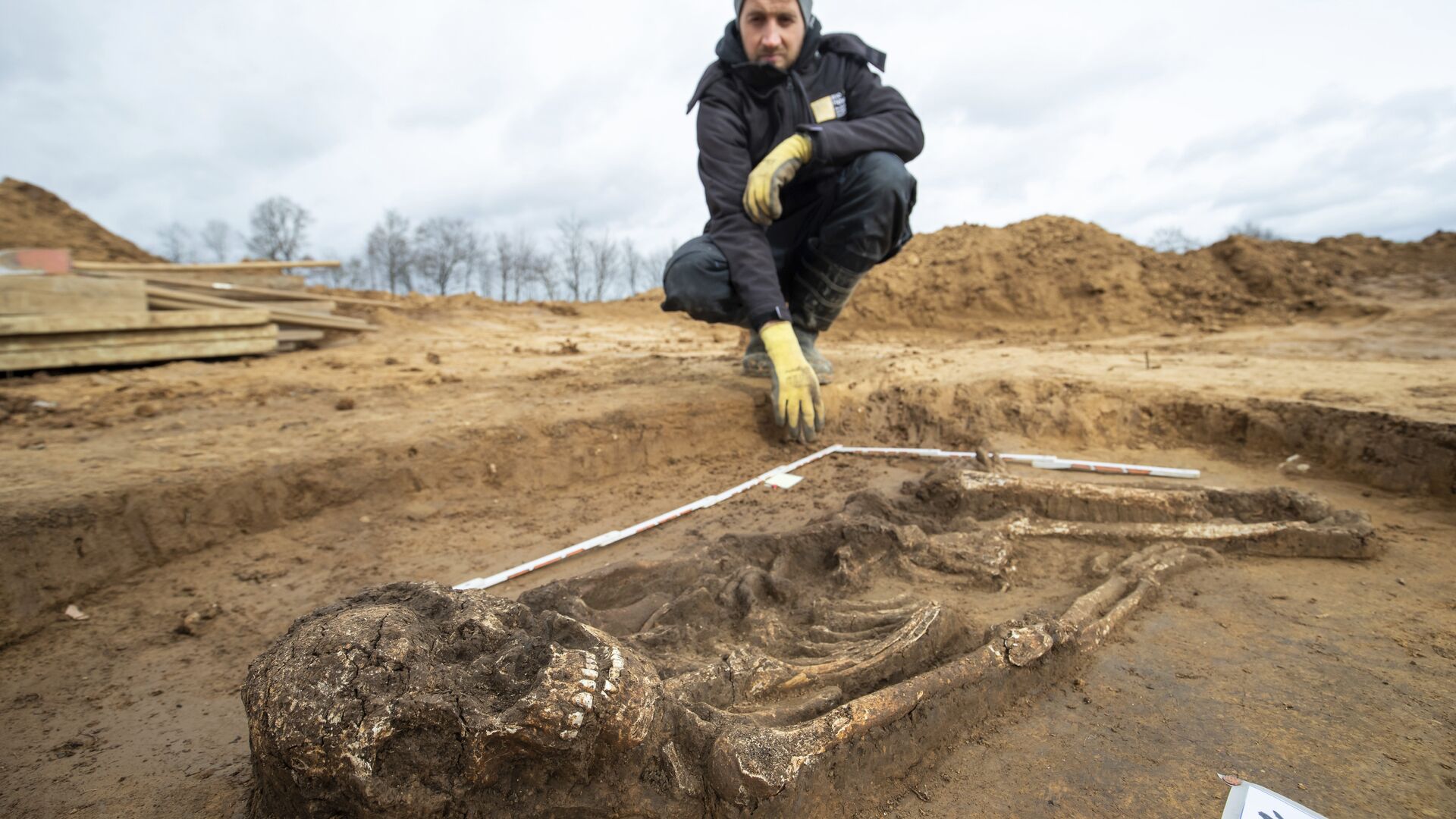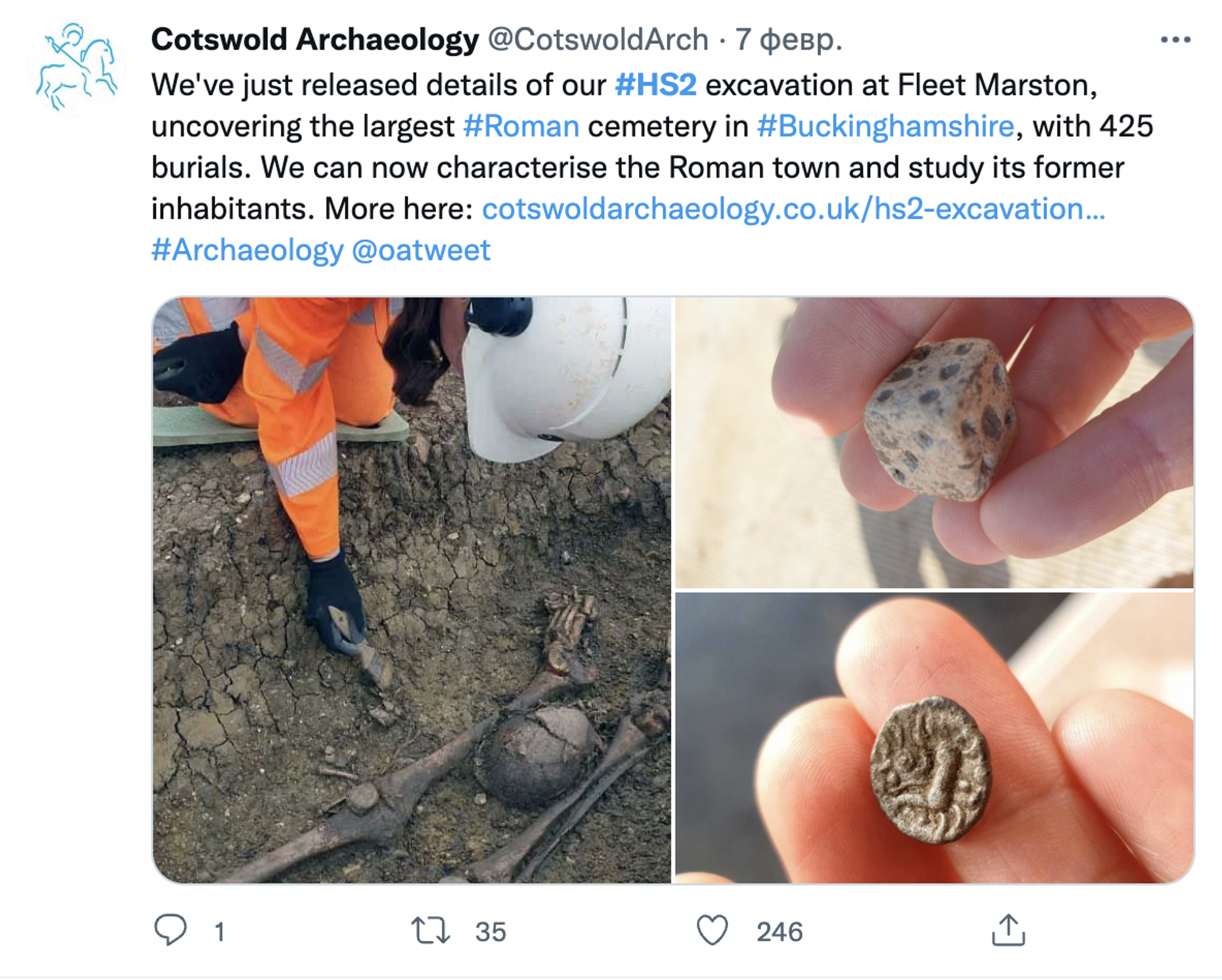British Archaeologists Discover Decapitated Skeletons in a Roman-Era Town
11:09 GMT 08.02.2022 (Updated: 13:32 GMT 06.08.2022)

© AP Photo / Daniel Karmann
Subscribe
Ironically, the discovery was made at the construction site of a high-speed railway line (HS2) that has come under intense criticism for its spiralling costs and the potential detrimental effect it may have on the environment, but its seems every cloud has a silver lining.
Archaeologists in the UK have unearthed a Roman-era town, northwest of London, local media outlets have reported. The most interesting find discovered at the site was a cemetery housing 425 bodies. About 40 skeletons were decapitated.
There were several instances when the head was placed between the legs or next to the feet. Researchers that say while decapitation is "well-known elsewhere and appears to have been a normal, albeit marginal, burial rite during the late Roman period", the practice of a head being placed next to the lower part of the body could mean the individual was a criminal or some sort of an outcast.
There are two separate burial areas in the cemetery, which scientists say suggests that they were organised by tribe, family, or ethnic grouping.
Helen Wass, head of heritage at HS2 Ltd, said all of the remains will be treated with dignity and after conducting further examinations more information will be shared.
Aside from the cemetery, the archaeologists discovered numerous artefacts from cutlery to over 1,200 coins, pottery, bells, tools, and ornaments as well as gaming dice. According to the scientists, these findings are evidence of commercial and industrial activity.
There are two separate burial areas in the cemetery, which scientists say suggests that they were organised by tribe, family, or ethnic grouping.
Helen Wass, head of heritage at HS2 Ltd, said all of the remains will be treated with dignity and after conducting further examinations more information will be shared.
Aside from the cemetery, the archaeologists discovered numerous artefacts from cutlery to over 1,200 coins, pottery, bells, tools, and ornaments as well as gaming dice. According to the scientists, these findings are evidence of commercial and industrial activity.

Twitter screenshot
© Photo
"Apart from being home to many inhabitants, the settlement is likely to have been an important staging post for travellers and soldiers passing through Fleet Marston on their way to and from the garrison at Alchester", the group of scientists said.
Fleet Marston is one of multiple archaeological sites examined by researchers as part of the ongoing construction of the high-speed railway line (HS2) to connect major cities in the Midlands and North of England with the capital London. It is expected that the project will not only cut travel time, but also heal the economic divide between the north and south of Britain.
HS2, however, has become the subject of harsh criticism due to its spiralling costs (from $74.5 billion in 2015 up to $132.7 billion in 2019) and potential detrimental impact on the environment, such as the chopping down of trees and CO2 emissions.
HS2, however, has become the subject of harsh criticism due to its spiralling costs (from $74.5 billion in 2015 up to $132.7 billion in 2019) and potential detrimental impact on the environment, such as the chopping down of trees and CO2 emissions.
